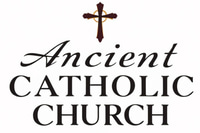Saint Anselm of Canterbury
SAINTS


Saint Anselm of Canterbury: A Pillar of Medieval Theology
Anselm of Canterbury (c. 1033–1109), widely revered in both Catholic and Anglican traditions, stands as one of the most important figures in the history of Christian theology. As a philosopher, theologian, and church leader, his intellectual legacy fundamentally shaped the intellectual contours of medieval Christianity and has left an indelible mark on subsequent theological discourse. This reflection seeks to explore Anselm’s life, his theological contributions, and key concepts embedded in his work, particularly through his seminal texts.
The Life and Context of Anselm
Anselm was born in Italy, likely in Aosta, and later served as the Archbishop of Canterbury from 1093 until his death in 1109. His early education suggested a prodigious intellect, and his theological journey began in earnest when he entered the Benedictine monastery at Bec in Normandy. Here, Anselm was nurtured in the tradition of monastic scholarship, where his philosophical inclinations began to coalesce with theological inquiry. Political turbulence in England marked Anselm’s tenure as Archbishop, particularly his conflicts with King William Rufus and King Henry I, which affected ecclesiastical authority and the role of the church in society.
Anselm is often characterised by his axiom “fides quaerens intellectum,” which translates to "faith seeking understanding." This phrase encapsulates his approach to theology, which combines a deep commitment to faith with a rigorous philosophical inquiry, representing a paradigm shift in Christian thought during the high Middle Ages.
Key Works and Theological Contributions
1. Proslogion
One of Anselm's most significant contributions to theology is his argument for the existence of God, presented in his work Proslogion, composed around 1078–1079. The ontological argument laid out in this text is a cornerstone of Anselmian thought. He famously posited that God is "that than which nothing greater can be conceived." Anselm argues:
> “And certainly that being which exists both in the understanding and in reality is greater than that which exists only in the understanding.”
From this premise, Anselm concludes that if God exists in the understanding, He must also exist in reality, for to exist in reality is a greater state than merely existing in the mind. The ontological argument has spurred centuries of philosophical debate, influencing thinkers from Aquinas to Descartes and beyond.
2. Cur Deus Homo?
In his treatise Cur Deus Homo? (Why Did God Become Man?), Anselm addresses the central mystery of the Incarnation and the Atonement. Written during the late 11th century, this work seeks to clarify why it was necessary for God to become man. Anselm presents a satisfaction theory of atonement, arguing that human sin against God requires a reparation that can only be made by God Himself. He asserts:
> “If man could be saved by any other means than the death of the Son of God, then the death of the Son of God would not have been necessary.”
This radical idea emphasises God’s justice and mercy and posits that Christ’s death restores the order disrupted by sin. Anselm’s perspective shaped subsequent theological understandings of the atonement, leading to significant discussions in both Catholic and Protestant traditions.
3. Monologion
Another essential text is Monologion, written around 1077–1078. In this work, Anselm presents arguments for the existence and nature of God, primarily through rational reflection rather than formal proof. He discusses the nature of goodness, existence, and the relation between God and His creation. The work begins with the assertion of God's existence and culminates in an exploration of the attributes of God, particularly His simplicity and immutability. Anselm writes:
> “For if there be a greatest good, it follows that goodness itself is unity, and thus God is One.”
The Monologion is foundational for understanding Anselm’s conception of God, synthesising philosophical inquiry with theological claims.
4. De Veritate and De Libertate Arbitrii
In De Veritate (On Truth) and De Libertate Arbitrii (On the Freedom of Choice), Anselm further explores the relationship between truth, God, and human freedom. He posits that God is the ultimate truth and that all truths are dependent on God for their existence. Anselm defines truth in relation to God, stating:
> “For every truth which is true is certainly true by the fact that it is true in their cause, which is God alone.”
In these works, Anselm grapples with the philosophical implications of free will, affirming human agency while underscoring God's omniscience, which presents a nuanced view of divine foreknowledge and human freedom.
5. Excerpts from the Theological Works
Anselm wrote several other works that contributed to various areas of theology and philosophy. His Letters reveal his pastoral heart and theological insights, while De Incarnatione Verbi emphasises the dual nature of Christ. These writings highlight Anselm's efforts to reconcile faith with reason, providing a comprehensive theological framework that remains influential.
Key Concepts in Anselm’s Theology
1. Faith Seeking Understanding
The motto “fides quaerens intellectum” encapsulates Anselm's approach: faith does not abandon reason; rather, it actively seeks to understand the rationality underpinning faith. This synthesis became a hallmark of medieval scholasticism, particularly influencing theologians like Thomas Aquinas.
2. The Ontological Argument
Anselm's formulation of the ontological argument revolutionised theological discourse. It presents a unique method for proving God's existence that does not rely on empirical evidence, but on a priori reasoning. This argument continues to be a rich field of exploration within philosophical theology.
3. Satisfaction Theory of Atonement
Anselm's satisfaction theory redefined the understanding of sin and redemption in Christian theology. By merging notions of divine justice and mercy, he presented a coherent view of why the Atonement was both necessary and sufficient for salvation.
4. The Nature of God
Anselm’s progressive understanding of God's attributes—His simplicity, immutability, and ultimate goodness—set the tone for later theological discussions. Anselm’s definitions influenced not only Catholic theology, but also the broader Christian intellectual tradition, offering a model where philosophical rigour complements theological reflection.
5. The Relationship of Faith and Reason
Throughout his works, Anselm advocates for the compatibility of faith and reason. He emphasises that while faith is essential, reason plays a crucial role in deepening one’s understanding of divine truths. This approach fostered the development of scholasticism and the belief in an intelligible faith.
Anselm of Canterbury’s contributions to theology resonate profoundly within the Catholic tradition and beyond. Through his exploration of the relationship between faith and reason, his innovative theological arguments, and his comprehensive view of God's nature, Anselm laid the groundwork for medieval scholasticism and modern theological inquiry. His works, particularly the Proslogion and Cur Deus Homo?, continue to provoke thought and inspire debates, ensuring that Anselm’s legacy as a towering figure in the history of Christian theology remains secure.
Anselm’s intellectual journey speaks volumes about the nature of faith as a pursuit that is both personal and rational. In a world that often pits these two against each other, Anselm invites believers to embrace a faith that seeks understanding, embodying a commitment that echoes across the ages. As contemporary theologians and philosophers continue to engage with his works, they honour Anselm not only as a theologian but as a faithful seeker of truth. His life and contributions remain a testament to the enduring relationship between reason and faith within the Catholic tradition.
Ancient Catholic Church
Embracing faith, inclusion, and compassionate service together.
ST THOMAS AQUINAS SEMINARY
© 2025. All rights reserved.
QUICK LINKS
